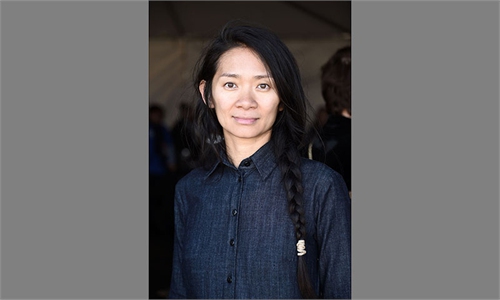ARTS / FILM
‘No broadcasting!’ Hong Kong’s TVB shows an opposing position to the political views of 2021 Oscars: experts

Oscars phtoo:VCG
The decision by China’s Hong Kong TV station Television Broadcasts Limited (TVB) not to broadcast the 93rd Academy Awards reveals the station’s political stance as well as an opposing position to the political views of the awards, Chinese film experts said on Tuesday.
The analysis came after a TVB spokesman told media on Monday that “it was a purely commercial decision that we decided not to pursue the Oscars this year.”
However, film experts in China have said that the decision was not likely a “commercial” one, adding that the true reason was the Academy’s nomination of Do Not Split, a short documentary that recorded the protests and violence in Hong Kong in 2019, as well as the nominations given to controversial Chinese director Chloe Zhao’s Nomadland.
“The nominations for Do Not Split and director Chole Zhao’s Nomadland show the strong political sentiment of this year’s Oscars. But TVB, as a influential TV station in Hong Kong, has the right to show its political stance by making the decision not to broadcast the event,” Shi Wenxue, a film critic based in Beijing, told the Global Times on Tuesday.
Some Chinese netizens commented on social media that the commercial reasons stated by TVB may be the high licensing fees for broadcasting the Oscars and TVB’s tight financial budget. According to media reports in 2020, the broadcast rights for the Oscars in North America were bought out by ABC TV for $65 million.
But Xiao Fuqiu, a film critic based in Shanghai, told the Global Times on Tuesday that he personally thinks the decision was mainly made due to the nomination of Do Not Split for best documentary (short subject).
“China-US relations have become increasingly strained in recent years, and if the Academy gave the award to Do Not Split out of political preferences and if TBV broadcast that, the station would be embarrassed,” he said.
Xiao added that it was unlikely that TVB gave up the broadcast rights for commercial reasons because the 93rd Academy Awards will be the first large-scale awards ceremony to be held offline in 2021 and will undoubtedly attract the attention of viewers all over the world. Additionally, the film Better Days, China’s Hong Kong’s entry for the Best International Feature Film, has delighted many Chinese movie-lovers, who will want to see if it wins in its category.
And Shi pointed out that TVB has deep ties to various streaming platforms in the Chinese mainland, and most of the viewership for its dramas and programs are from the mainland market. If the station chooses to broadcast the Oscars and that leads to a boycott, it might adversely impact its viewership numbers. “Not broadcasting this year’s Oscars is a smart decision.”
This decision is a major move for TVB, as it has broadcast the Oscars in Hong Kong annually since 1969 on its English language channel Pearl.
“It is not only TVB. Some TV stations and social media accounts in the Chinese mainland may not broadcast the 93rd Academy Awards, either,” Xiao said.



